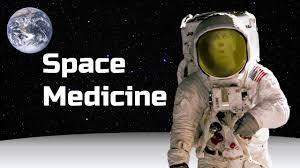In a groundbreaking study, Australian scientists have uncovered the reasons behind why astronauts often find food tasteless and struggle to maintain their nutritional intake in space. The research, conducted by RMIT University and published in the International Journal of Food Science and Technology, offers new insights that could improve the diets of both astronauts and people in other isolated environments, such as nursing home patients, through the personalization of food fragrances.
The study focused on how people’s perceptions of typical food scents, such as vanilla and almond extracts and lemon essential oil, change from Earth to the International Space Station (ISS). To simulate the ISS environment, researchers used virtual reality goggles for the participants.
Dr. Julia Low, the lead researcher from RMIT’s School of Science, revealed that the study found vanilla and almond fragrances to be more potent in the ISS-simulated atmosphere, while the lemon scent remained unaffected. The key to this shift in perception was identified as benzaldehyde, a pleasant molecule commonly found in vanilla and almond fragrances.
“We discovered that the spatial perception of scents plays a significant role in how people detect aromas,” Dr. Low explained. “This supports previous findings on astronauts’ dining experiences in space, such as the fluid shift phenomena.”
The fluid shift phenomenon in weightlessness causes fluids to move from the lower to upper parts of the body, leading to facial edema and nasal congestion that impair the senses of smell and taste. While these symptoms usually subside after a few weeks aboard the space station, the persistence of these issues suggests that isolation and loneliness might also contribute to the diminished sensory experience.
The study included 54 adults to capture the diverse experiences of individuals with scents and tastes in isolated environments. This research aims to help develop better-tailored diets for astronauts and others in similar circumstances to enhance their nutritional intake closer to 100 percent.
Dr. Low emphasized the broader implications of their findings: “Our research not only helps understand the challenges astronauts face but also opens up possibilities for improving the diets of people in isolated environments on Earth. Personalizing food fragrances could make a significant difference in enhancing the flavor and appeal of their meals.”
As space missions become longer and more frequent, understanding and addressing the dietary challenges faced by astronauts is crucial. This study represents a significant step towards ensuring that those in isolated conditions, whether in space or on Earth, can maintain better health and well-being through improved nutrition.












